Research & Studies
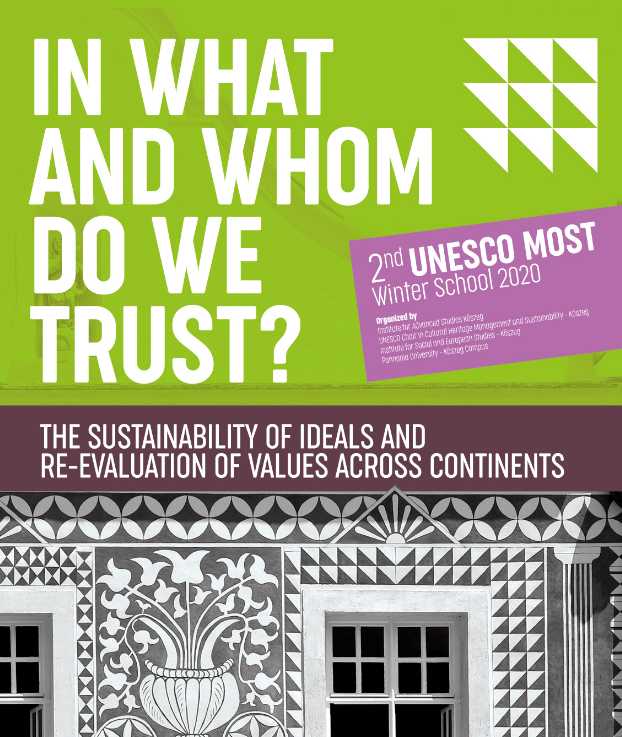
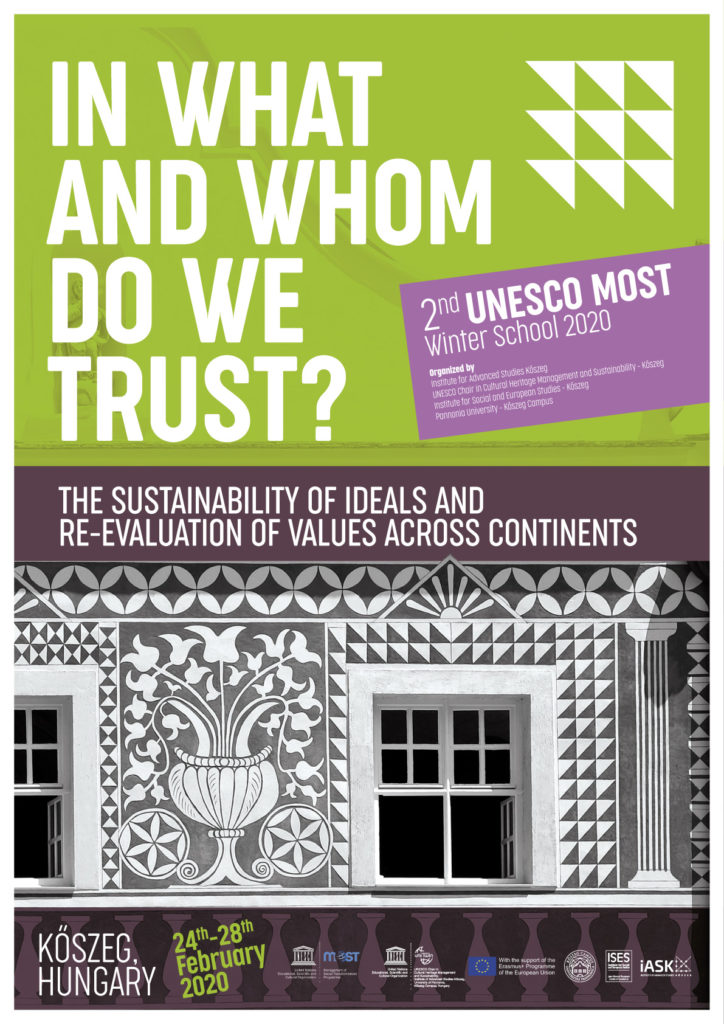
“In What and Whom Do We Trust? The Sustainability of Ideals and Re-evaluation of Values Across Continents”
Kőszeg, February 24 – 28, 2020
co-organized by:
Institute of Advanced Studies in Kőszeg
UNESCO Chair in Cultural Heritage Management and Sustainability – Kőszeg
Institute for Social and European Studies – Kőszeg
and
Pannonia University – Kőszeg Campus
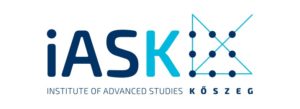
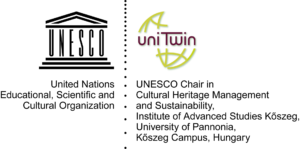
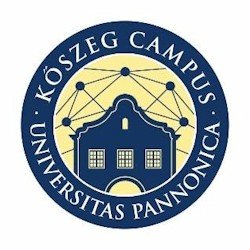
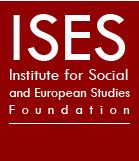
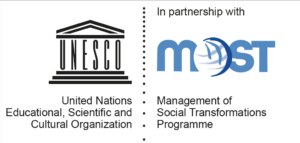
![]()
Concept
The increasing complexity of global politics speeds up social transformations around the world. The tension between rapid changes and established beliefs and norms among citizens shakes mutual and institutional trust. The dilemma whether supra-national entities and global caretaker organizations or returning to national political solutions can better address these issues will be tackled by this Winter School.
Bridging the gap between citizens and bureaucratic institutions calls for a broad, global horizon, for opportunities to discuss value images in various parts of the world. This MOST School intends to offer such an opportunity by contributing to a better global understanding of new and emerging political and social fault lines that will likely mark political representation patterns for years to come.
The UNESCO MOST Winter School at iASK poses the question: Why are we seeing the rise of post-liberal regimes? And what impact does this have on institutional trust at the local, national, and supranational levels? Is this merely a temporary global ‘glitch’ that will deteriorate over time as new challenges emerge?
With lectures and presentations by experienced academic researchers, activists and public officials with a broad, global horizon, the aim is to open discussions on visions for the establishment and re-establishment of trust on various levels of global, regional and lower levels of governance and politics. Participants will work together to produce a document with recommendations that answer the following questions:
The document will afterward be distributed to local governments, ministries, and media from the countries and supranational entities represented at the Winter School.
MOST Schools are capacity-building activities focused on strengthening competencies for evidence-informed decision-making. They help develop the capacity of researchers and decision-makers to translate knowledge into action. Their primary goal is to support long-term sustainable development in contexts where capacity gaps constrain translating research into action.
Preliminary Program and Concept of the IWS 2020
List of selected invited speakers:
H.E. Mladen Andrlic Ph.D – Ambassador of the Republic of Croatia to Hungary (tbc)
Csilla Vörös– Nielsen Audience Measurement
Ahmet Evin – Sabanci University
Sean Cleary – Strategic Concepts (Pty) Ltd.
Ferenc Miszlivetz – director of iASK
Jody P. Jensen – senior researcher of iASK
Ferenc Hörcher – National University of Public Service, Hungary
Cecilia Güemes – Autonomous University of Madrid
András Edelényi – European Economic and Social Committee
Szabolcs Takács – Ministerial Commissioner for Brexit affairs at the Hungarian Prime Minister’s Office (tbc)
Michal Vit – Prague Metropolitan University
János Bogárdi – University of Bonn/iASK
Gábor Márki – Hungary Helps (tbc)
Кlaus Wolfer – Austrian Ministry of Foreign Affairs
Ljupcho Petkovski – Independent policy consultant
Call for Applications:
Application Form- UNESCO International Winter School 2020 by iASK
Application deadline: 31 January 2020
Participation fee: 100 EUR
The organizers provide:
educational program and materials
special events
lunch and dinner
visa invitation letters
Participants cover:
travel costs to/from Kőszeg
accommodation
participation fee
visa + insurance costs
Applicants should send the following documents to [email protected] and [email protected] :
Eligibility: Advanced MA and PhD students and young researchers, young professionals, policymakers, and social entrepreneurs, who have a keen academic or professional interest in the topics.
Full documentation and updated information may be found at the iASK website at https://iask.hu/2nd-unesco-most-winter-school-24-28-february-2020-at-iask/
Kőszeg is called “The Jewel of Pannonia”. This beautiful medieval town borders 5 countries (Austria, Slovakia, Slovenia, Croatia, Hungary). This provides a rich cultural and regional added value, and the opportunity for strong cross-border cooperation. In a region where the iron curtain was built, developing a regional knowledge center is exceptional and contributes to supporting opportunities furthering cooperation in an age of increasing uncertainties.